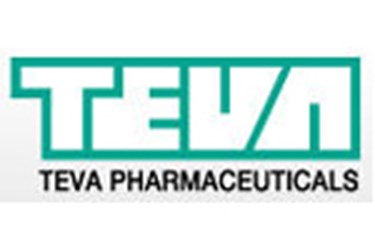Teva, Intel Develop Technology To Monitor Huntington's Disease

Teva Pharmaceuticals has teamed up with Intel to develop a platform for continuous monitoring of the physical symptoms associated with Huntington’s Disease (HD), in order to better understand the disease and its progression. Wearable devices worn by clinical trial participants will transmit data to a cloud-based platform developed by Intel, where it will be analyzed by researchers and leveraged into improved HD treatments.
HD is characterized by the degeneration of nerve cells in the brain, which can — over time — alter a patient’s daily functional abilities, movements, and cognitive processes, according to the Mayo Clinic. Though there are medications to lessen the severity of symptoms, there are no currently available treatments that will alter the course of the disease or slow its progression, and the condition is fatal within 15 to 25 years of diagnosis.
Clinical trials traditionally have depended on patient testimony to monitor how medications managed symptoms day-to-day, but the advent of wearable technology has given researchers access to more consistent and actionable data, said Michael Hayden, president of global R&D and chief scientific officer at Teva, in a press release. As part of a clinical study currently underway, Teva will be asking participants to wear smart watches equipped with biosensors that can monitor movement and general functioning. Data collected from these watches and connected smartphones will transmit wirelessly to Intel’s cloud-based platform, where it will be analyzed to determine symptom severity.
“The aim of this important project is to provide continuous objective data on the impact of Huntington disease on the patient, and, by extension, a clear understanding of the impact of treatment on patients’ quality of life.” said Hayden, adding that data collected during the study could be leveraged into the development of future clinical trials.
The Pride-HD study began enrolling in 2014 and is a phase II trial of the investigational drug pridopidine, indicated for treatment of both physical and psychological symptoms of HD. A sub-study within Pride-HD, integrating wearable technology and Intel’s data platform, will begin toward the end of 2016 in research facilities in the U.S. and Canada.
“Patients generate data based on their day-to-day experiences that can help in improving disease management — even something as simple as wearing a smart watch can add useful insight,” said Jason Waxman, Corporate VP and GM of the Datacenter Solutions Group at Intel. “The complexity of analyzing these data streams requires a platform for machine learning, to help drive the pharmaceutical industry towards faster, better clinical trials, potentially leading to new treatments for patients.”
Over the past year, Teva has inked several partnerships with companies hoping to advance the integration of big data analytics into mainstream healthcare. Teva and Philips Healthcare have invested $100 million over eight years in a joint-development Sanara Ventures, a medtech incubator based in Israel. Companies invited to the new platform will include those specializing in biosensors, remote monitoring, and digital health. Teva’s recent partnership with IBM’s Watson Health Cloud is aimed at building global e-health solutions.
